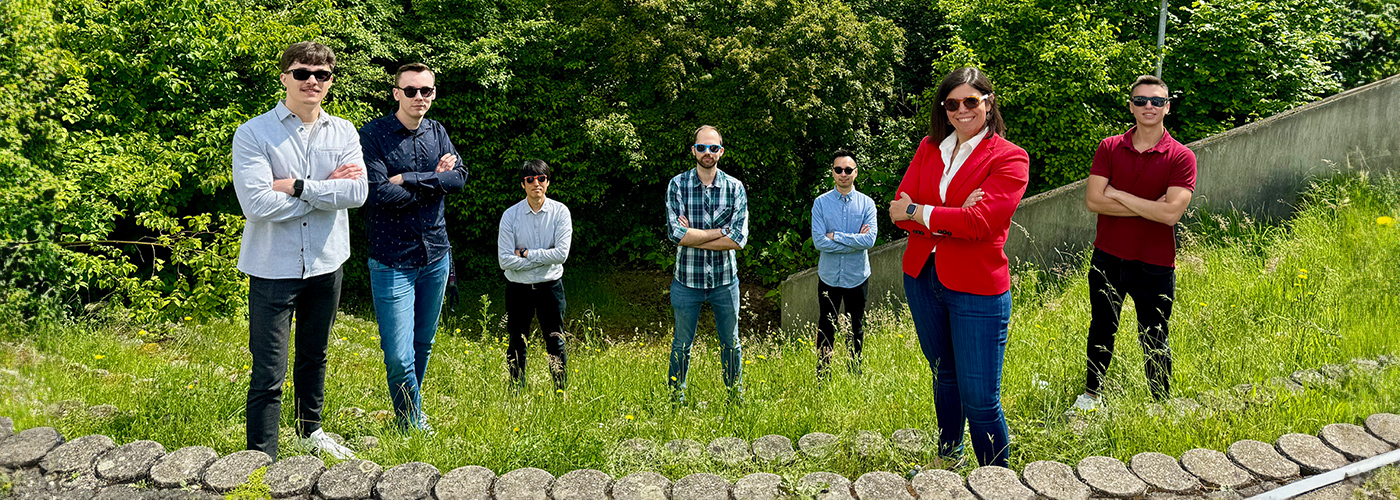Particle suspensions that conduct electricity while flowing
Electrofluids research group investigates new alternatives as soft, electrical components. We use conductive particles that form electrical and mechanical networks in liquid matrices. This novel approach combines classical percolation of particles in composites and fluid dynamics. Our research encompasses particle characterization and agglomeration studies, surface functionalization, electrical and rheological measurements, 3D printing, and device integration

The research on Electrofluids is supported by the European Research Council (ERC)
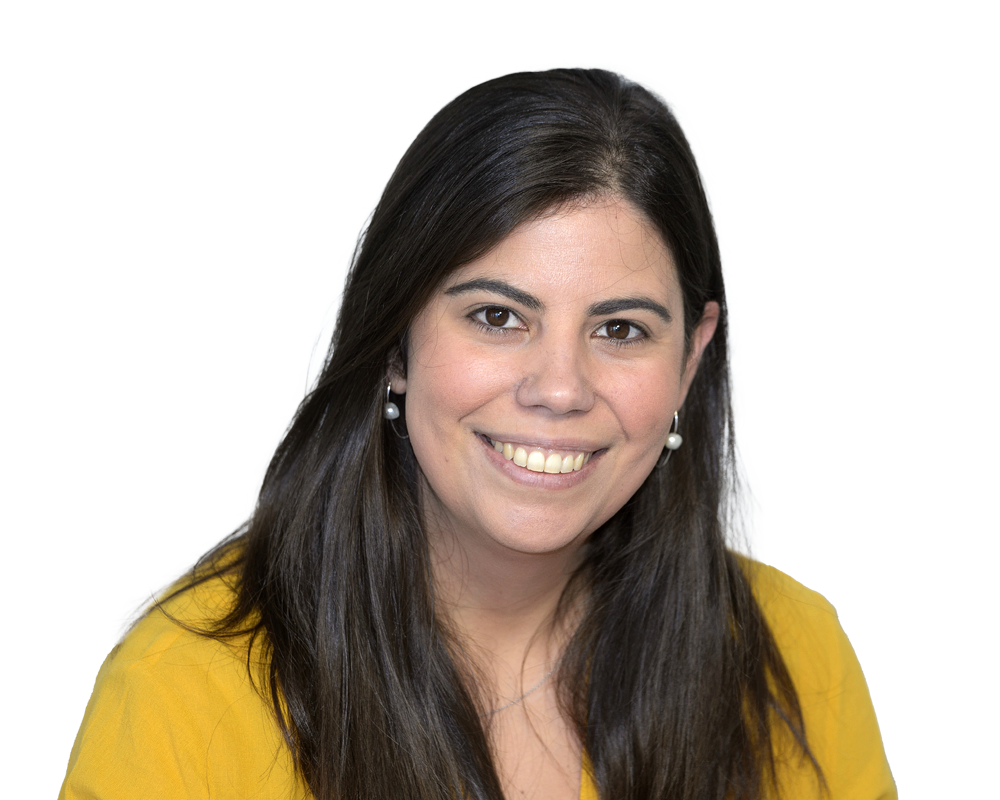
Team Members
Research
Electronic components and robotic actuators are traditionally built from metals and semiconductors. The Junior Research Group Electrofluids investigates “Electrofluids” as a liquid alternative: suspensions that conduct electrons while flowing as liquids. Fluids in elastic enclosures can replace solid leads and enable truly soft devices. Sufficient conductivity requires highly concentrated suspensions of conductive particles. They form transient conductive networks at manageable viscosity. We study suspensions of common conductive materials such as carbon, silver, gold, and copper, and avoid specialized low-melting alloys of gallium or other expensive elements.
The group studies the interplay between particle-particle friction, contact resistance, percolation, bulk resistance, and suspension viscosity. We use both custom-synthesized and commercial particles in a size range of tens of nanometres to few microns and with different shapes, modify their surfaces with conventional and p-conjugated surfactants and formulate concentrated suspensions that exhibit large conductivity at low viscosity. The combination of different particle sizes, shapes, and fluids enables tuning the properties of the fluid towards specific application cases, for example to create highly flexible leads for logic signals versus high-power connections for the connection of actuators.
The specific aims of this research group are:
- to design highly concentrated suspensions that form transient percolating networks,
- to use this knowledge and synthesize fluids with tunable electrical conductivity at low viscosity,
- to demonstrate that Electrofluids can be tailored for particular applications.
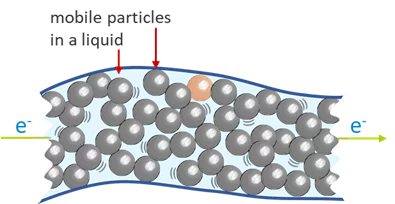
News
We launch our NEWS section!
Here, we want to share with you our last announcements and achievements, so please stay posted!
Congratulations and “welcome”, Niclas Hautz!
Niclas Hautz has successfully defended his Master thesis in Material Science entitled „Effect of water on electromechanical properties of polymer-based carbon black composites“. A work carried out in collaboration between Electrofluids group and Structure Formation group at INM. Congratulations! We are twice as happy because, far from being a goodbye, this brings more time together: Niclas starts today as PhD student in the Electrofluids group. We wish you all the best!
Goodbye 2022!
We had last week the traditional Christmas party together with the Structure Formation Group, a fun way to say goodbye to the year. Some of us went first play laser tag, unfortunately, Electrofluids (in red) could not beat SFG (in blue)…but they had 1 more player! After that we spent some time at the traditional Christmas Martket in Saarbrücken followed by a nice German dinner. We all wish you a happy Christmas and a good start into the year and are looking forward to more science and fun in 2023!
Dr. Lola González-García is now associated Junior Professor at the Saarland University!
Congratulations to our group leader Jun.-Prof. Dr. Lola González-García, who is now associated Junior Professor at the Department of Materials Science and Engineering of the Saarland University.
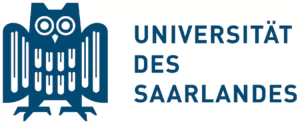
Proudly winners of the Corn Hole tournament!
Congratulations to our group leader Jun.-Prof. Dr. Lola González-García, who is now associated Junior Professor at the Department of Materials Science and Engineering of the Saarland University.
We welcome Niclas Hautz!
Niclas Hautz is a material scientist. He received his bachelor’s degree from Saarland University in 2021. Currently, he is doing his master’s degree at the Saarland University in the field of Material Science. He joins the Leibniz INM to do his master thesis at the Electrofluids group on the topic of composite technology, with special interest in double-percolating systems. Welcome to Electrofluids, we wish you all the best!
We welcome Sergio Lago Garrido!
Sergio Lago is an industrial chemical engineer. He completed his Bachelor degree in the university from Huelva, Spain. Now, he is working on his Master degree in chemical engineering with the specialization of Food and Pharmaceutical Products Engineering. He joins the Leibniz INM to work on his thesis in the Electrofluids group with focus on carbon nanotubes soft conductors. Welcome to Electrofluids, we wish you all the best!
Congratulations to Hendrik Rolshausen for defending his Master Thesis!
Our Master Student, Hendrik Rolshausen, has defended successfully his thesis entitled “Surface Modification and Characterization of Silver Particles and their Use in conductive Materials”. Congratulations!
Electrofluids @Nano2022 in Sevilla (06-10 June)
Dr. Lola González-García will present the last results on Electrofluids (and beyond) in Sevilla at the 16th International Conference on Nanostructured Materials (Nano2022).
- Monday, 6th of June at 11.15 h, S7_1: Electrofluids: electronic flowing leads based on conductive particle suspensions.
- Monday, 6th of June at 18.00 h, S11_3: Direct nanoimprinting of metal nanostructures: a method to fabricate flexible, transparent electrodes.
- Tuesday, 7th of June at 18.00 h, S7_3: Sinter-free inks of metal-polymer hybrid particles for printed electronics.
Check our paper published in Advanced Materials Technologies
Our collaboration with the Structure Formation Group at INM (Tobias Kraus) has resulted in a very interesting work on „Microscopic Softening Mechanisms of an Ionic Liquid Additive in an Electrically Conductive Carbon-Silicone Composite“. You can find the article: LINK. Congratulations to all the authors!
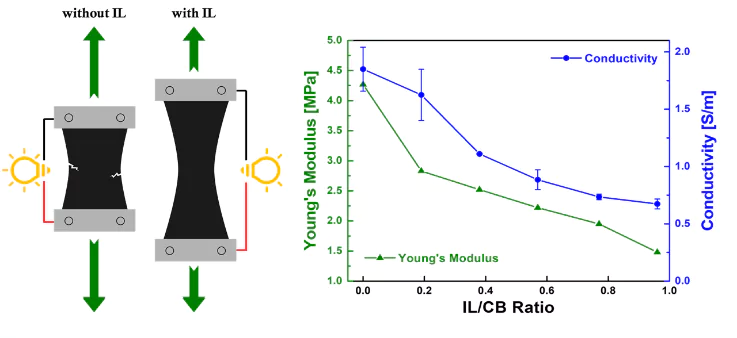
We welcome Dr. Srishti Arora!
Dr. Srishti Arora is a soft matter physicist. She completed her Ph.D. from Laboratoire Charles Coulomb, Université Montpellier, France in 2017 followed by her first Postdoctoral studies at Northwestern University, USA. Her research work broadly encompasses the synthesis of colloidal particles, preparation of complex fluids, polymeric gels, etc., and understanding their behavior under extreme mechanical stress utilizing rheological techniques coupled with microscopy/or high-speed imaging. Currently, she is working on the development of electronic suspensions and investigating their rheoelectrical properties.
Publications
Schmidt, Dominik S. | Kraus, Tobias | González-García, Lola
ACS Applied Materials & Interfaces , 2024, 16 (33), 43942-43950.
https://pubs.acs.org/doi/10.1021/acsami.4c07230
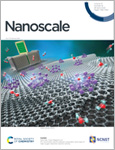
Buchheit, Roman | Niebuur, Bart-Jan | González-Garcia, Lola | Kraus, Tobias
Nanoscale , 2023, 15 (16), 7526-7536.
https://pubs.rsc.org/en/content/articlelanding/2023/nr/d3nr01038d
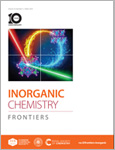
Drzic, Juraj | Escudero, Alberto | González-Garcia, Lola | Kraus, Tobias
Inorganic chemistry frontiers , 2023, 10 (5), 1552-1560.
https://doi.org/10.1039/D2QI02722D
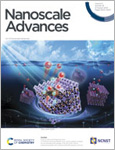
Engel, Lukas F. | Gonzalez-Garcia, Lola | Kraus, Tobias
Nanoscale Advances , 2023, 5 4124-4132.
https://pubs.rsc.org/en/content/articlelanding/2023/NA/D3NA00293D
Engel, Lukas F. | Gonzalez-Garcia, Lola | Kraus, Tobias
Nanoscale Advances , 2022, 4 3370-3380.
http://dx.doi.org/10.1039/D2NA00259K
Engel, Lukas F. | González-García, Lola | Kraus, Tobias
Nanoscale Advances , 2022, 4 (18), 3940-3949.
http://dx.doi.org/10.1039/D2NA00352J
Kang, Dongjin | González-García, Lola | Kraus, Tobias
Flexible and Printed Electronics , 2022, 7 033001.
http://iopscience.iop.org/article/10.1088/2058-8585/ac8360
Zhang, Long | Schmidt, Dominik S. | González-García, Lola | Kraus, Tobias
Advanced Materials Technologies , 2022, 7 (11), 2101700.
https://onlinelibrary.wiley.com/doi/abs/10.1002/admt.202101700
Castillo-Seoane, Javier | Gonzalez-Garcia, Lola | Obrero-Perez, José M. | Aparicio, Francisco J. | Borrás, Ana | González-Elipe, Agustín R. | Barranco, Ángel | Sanchez-Valencia, Juan R.
Journal of Materials Chemistry C , 2022, 10 (18), 7119-7131.
http://dx.doi.org/10.1039/D1TC06167D
Bettscheider, Simon | Kuttich, Björn | Engel, Lukas F. | González-García, Lola | Kraus, Tobias
The Journal of Physical Chemistry C , 2021, 125 (6), 3590-3598.
https://doi.org/10.1021/acs.jpcc.0c10919

